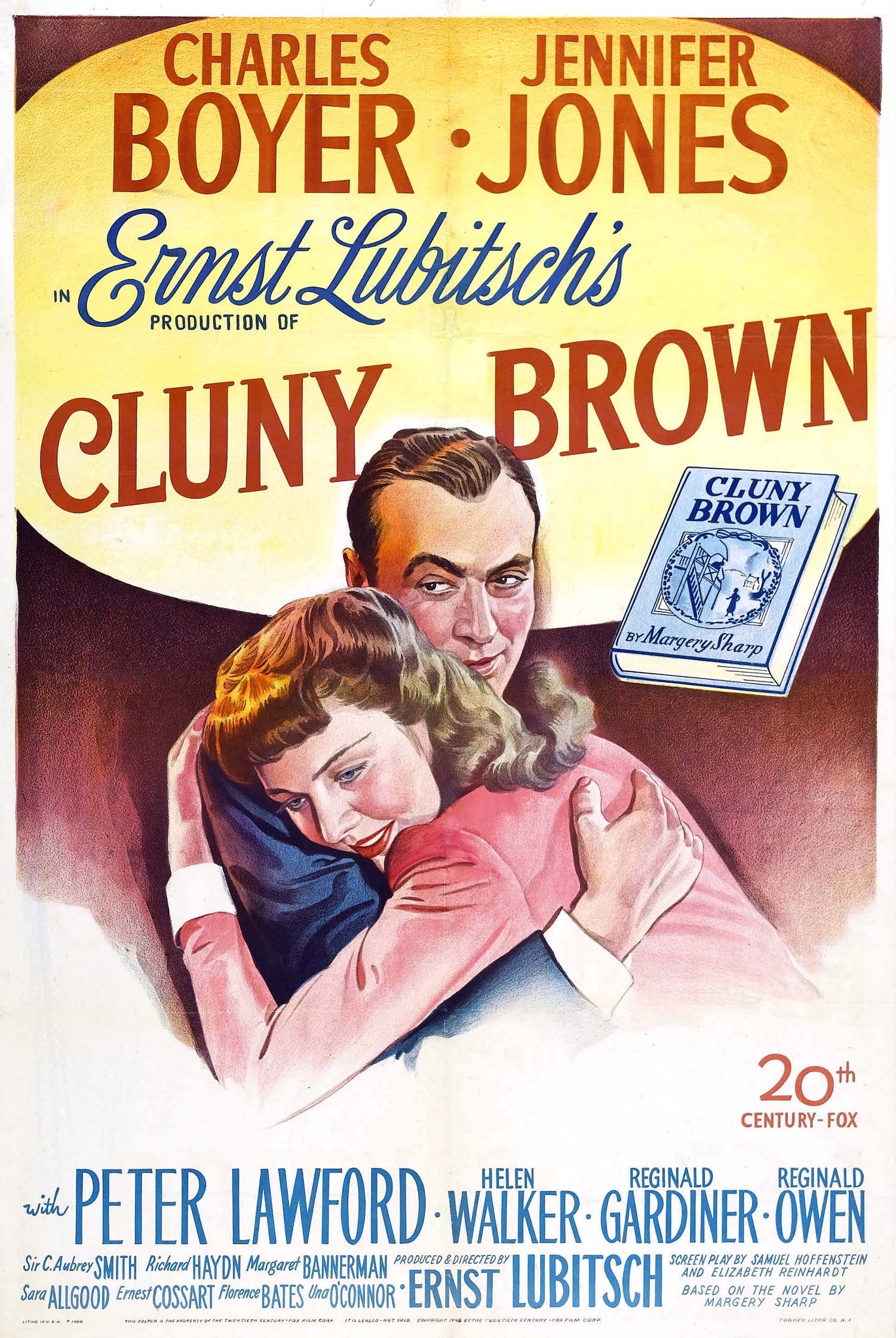In the (probably apocryphal) story of the funeral of Ernst Lubitsch, director William Wyler leaves the grave site with the remark “Well, no more Lubitsch.” Billy Wilder replies, “Worse than that. No more Lubitsch movies!” It’s hard not to sympathize. Cluny Brown, the final film completed by Lubitsch, may have a lightweight screenplay, but the master of sophisticated comedy and continental wit makes it sing. A romantic comedy set in 1938, it offers two uninhibited free spirits (Charles Boyer as a Czech intellectual fleeing the Nazis; Jennifer Jones as a working class girl with a passion for plumbing) rattling around a class-conscious Britain that’s blithely oblivious to the winds of war. Produced in 1946, just after World War II, there’s no urgency or bite to the satire of self-serious high society more concerned with decorum than substance; and the disconnected world is flatly, almost lazily visualized. Yet Lubitsch’s deft comic grace, generosity of character, and elegant direction transforms every satirical aside and absurd turn into perfectly cut (if never quite cutting) jewels. He never stoops to wink at the audience or stop for a punchline. It’s all about the lyric of conversation and the dance of decorum. (NR) SEAN AXMAKER
May 13-19, 7 & 9 p.m., 2011




